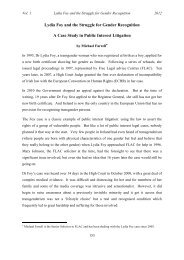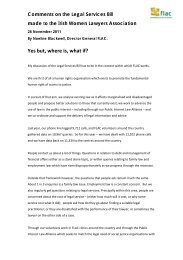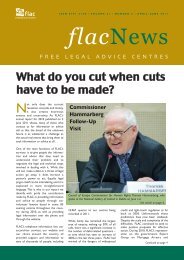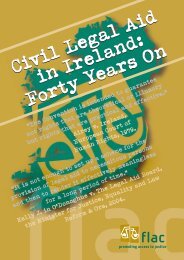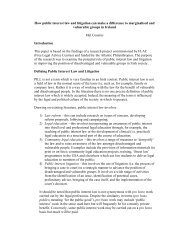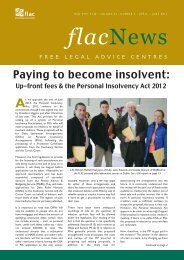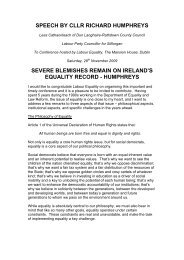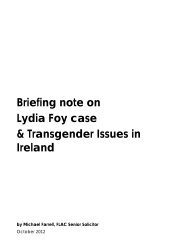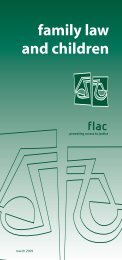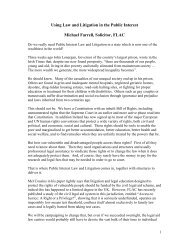Public Interest Litigation as a Tool for Vulnerable Groups: Lessons ...
Public Interest Litigation as a Tool for Vulnerable Groups: Lessons ...
Public Interest Litigation as a Tool for Vulnerable Groups: Lessons ...
You also want an ePaper? Increase the reach of your titles
YUMPU automatically turns print PDFs into web optimized ePapers that Google loves.
implementation of any of those principles. It is thus argued by many peoplethat economic and social rights, such <strong>as</strong> those identified in the ICESCR, shouldbe incorporated in the Constitution in such a way that an individual couldseek from the Courts redress if his or her rights under the Covenant had notbeen met. It is argued that unless these rights are justiciable, they are noteffective. 51He also <strong>as</strong>ks whether the Courts are the correct bodies to adjudicate onthese issues:There is an important political and philosophical question yet to be answeredsatisfactorily; that is whether the protection and achievement of policy valuesin the social and economic sphere is property <strong>for</strong> the legislative and executivearms of the State or <strong>for</strong> en<strong>for</strong>cement through the judicial system… I, <strong>for</strong> mypart, believe p<strong>as</strong>sionately in politics <strong>as</strong> the means <strong>for</strong> conducting andresolving social and economic issues. 52A further rationale given <strong>for</strong> this position is the belief that ‘cl<strong>as</strong>sical civil andpolitical rights’ are ‘public goods’ while economic and social rights are‘private goods’. 53 Thus the suggestion is that while it is appropriate that theCourts c<strong>as</strong>t judgement on the first he suggests that the latter are in his view‘the stuff of politics and not at all appropriate to be decided by the Courts.The problem with the suggestion of ‘politics’ <strong>as</strong> a means <strong>for</strong> conducting andresolving social and economic issues’ comes down squarely to the questionof uneven access to politics.<strong>Vulnerable</strong> groups, by virtue of their position in society are severelydisadvantaged in accessing politics, in very many instances being <strong>for</strong>ced tobe concerned with day-to-day survival rather with long-term strategicpolitical involvement. If constitutionally guaranteed fruits are denied to themby virtue of their socio-economic position, this would create an obligationupon states to pay attention to their empowerment. Since a major factor inindigence is the lack of resources it is hard to understand how the ‘politicalrealm’ can be engaged without the largesse and generosity of majoritypopulation. This would make access to constitutional guarantees a questionor charity rather than one rights.The non-justiciability argument is also challenged by the Committee <strong>for</strong>Economic, Social and Cultural Rights (CESCR) the monitoring body <strong>for</strong> theInternational Covenant <strong>for</strong> Economic, Social and Cultural Rights (to whichIreland is bound), who often meet this argument. They make three tellingpoints in their general comment on the subject, drawing on the work of theInternational Law Commission which differentiates between ‘obligation ofconduct’ and ‘obligation of result’, suggesting that the paucity of dramaticresults in the realm of economic and social rights promotion could notabdicate the obligation of conduct by the State to guarantee and protectsuch rights. Just because the rights contained the Covenant are not framed<strong>as</strong> direct entitlements in the same way <strong>as</strong> civil and political rights are, doesnot means that there are no obligations on state parties. Thus while51 Ibid.52 Ibid.53 Against this see the various writings in the context of EU law <strong>as</strong> contained in Hervey T. & Kenner J.(eds.) Economic and Social Rights under the EU Charter of Fundamental Rights (Hart, 2003)11



